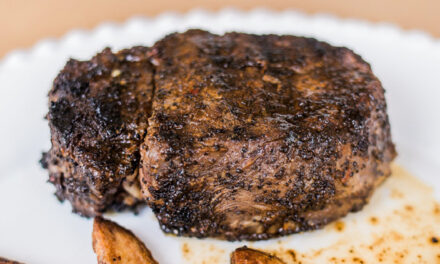In the health and wellness world, opinions and misinformation often cloud evidence-based nutrition research, leaving us wondering who to trust and what to believe. As Thanksgiving approaches, avoid an extra helping of nonsense nutrition information disguised as “fact.”
Watch Out for These Common #FakeNews Offenders
- Nutritionists: No requirements exist for an individual to call oneself a “nutritionist,” nor is this title accredited. Though online programs claim individuals can be certified as a nutritionist, these certifications are not recognized by hospital systems, insurance companies, medical professionals, or the Academy of Nutrition & Dietetics.
- Coaches | Trainers: They are experts in exercise physiology, kinesiology, sport, and strength training. Want to build endurance and strength or learn to excel at a sport? Seek out a trainer. Want to fuel well to enhance performance? Seek out a Registered Dietitian.
- Media | Celebrities: Beware of misinterpretations of scientific studies in the media to enhance audience and readership ratings. And keep in mind: it does not matter what Beyoncé eats in a day or that Gwyneth Paltrow believes a raw food diet can save your health. Celebrities are talented in many other areas, but they are not nutrition experts.
- Internet | Google: Good sites should rely on medical research, not opinion. When reading a nutrition-related article, look out for the author’s credentials to make sure information is coming from a trustworthy source.
- Family & friends: Just because one diet worked for your coworker doesn’t mean you should try it too. Nutrition opinion is rooted in “he said, she said,” but nutrition science is based on just that…science.
- Diet Industry: The diet and weight loss industry was valued at 72 billion dollars in 2018, a whopping 4% increase from 2017, proving that despite our dieting efforts, we are still reaching for hopeless solutions rather than a nourishing, sustainable relationship with food.
- Health Professionals: Healthcare professionals have likely been exposed to nutrition science to an extent; however, healthcare providers each have their own valuable specialties. Nutrition therapy is the Registered Dietitian’s specialty.
Listen to Real Nutrition Experts
Pseudoscience saturates the nutrition world, mostly coming from individuals who are not Registered Dietitian Nutritionists, or RD/RDNs.
Registered Dietitians must…
- Earn a Bachelor’s degree with coursework approved by the Academy of Nutrition and Dietetics including, but not limited to: food and nutrition sciences, biochemistry, physiology, chemistry, organic chemistry, public health, management, business marketing, and research statistics.
- Obtain a Master’s degree by 2024.
- Complete an accredited, supervised practice program requiring 1200+ hours spent in hospitals, food service establishments, outpatient and community settings.
- Pass a national examination administered by the Commission on Dietetic Registration.
- Complete continuing professional education to maintain registration.
- Consider the potential to earn additional certifications requiring an addition 1000+ hours in a specialized subfield of nutrition. Examples include nutrition support, sports, diabetes, renal, eating disorders, and pediatrics.
- Become licensed in the state of Tennessee, ensuring that only RDs can provide medical nutrition therapy improving the overall health and wellbeing for Tennesseans.
- Note: All Registered Dietitians are nutritionists, but not all nutritionists are Registered Dietitians.
Deciphering the difference: #FakeNews vs. #RealFacts
Consider the following:
- Who is providing the information? Warning! If your nutritionist isn’t qualified to work for a hospital or physician’s office, that’s a red flag and cause for concern.
- Does research back up their claims? A Registered Dietitian provides evidence-based advice that considers the whole person’s wellbeing. Watch out for these nutrition myths like these and more…
- ______________ is the only healthy diet.
- Health is the presence of thoughtful nutrition, intentional mindfulness, regular movement, and meaningful relationships. Health looks different for everyone.
- One food or food group causes weight gain.
- No one food or food group causes weight loss, and no one food or food group will cause weight gain.
- Eating dietary fat causes body fat.
- Dietary fat promotes satiety and satisfaction and serves many important functions within the body ranging from hormone production to vitamin absorption to temperature regulation. The fat we eat is different from fat stored by the body.
- ______________ is the only healthy diet.
-
- Alkalize your body for optimal health.
- Each part of the body has a pH range that is necessary for proper functioning and is carefully maintained by a range of powerful mechanisms. You can’t simply alkalize your body, nor should you strive to.
- Alkalize your body for optimal health.
-
- It is bad to eat after ___:00pm.
- Food is food is food, no matter what time it is eaten. What matters is the total amount consumed on a day to day basis.
- It is bad to eat after ___:00pm.
- Ask yourself: Does this sound like a gimmick? Too good to be true? It probably is. At the end of the day, many companies are profiting as the 72 billion dollar industry sells unregulated supplements, mediocre shakes, and harmful health beliefs.
- When reading online: Who runs the site and why have they created it? Is it sponsored? What do they want from you (your personal information, etc.)? Where did the information come from? Does the site make unbelievable claims? Is it up-to-date?
Don’t fall for #FakeNews…
While there are many “nutritionists” in the world, there is only one credentialed nutrition expert: the Registered Dietitian. Avoid nutrition nonsense and #fakenews by challenging rigid or extreme nutrition advice. Memphis Nutrition Group’s Registered Dietitians can help you cut through the noise and find clarity. In a world full of harmful misinformation and so-called “experts”, it’s time to look beyond #FakeNews and root our actions around evidence-based science and eating patterns that allow us to live lives we value.
By Caroline Pruente, MS, RDN, LDN
For more information visit Memphisnutritiongroup.com or call 901.343.6146







